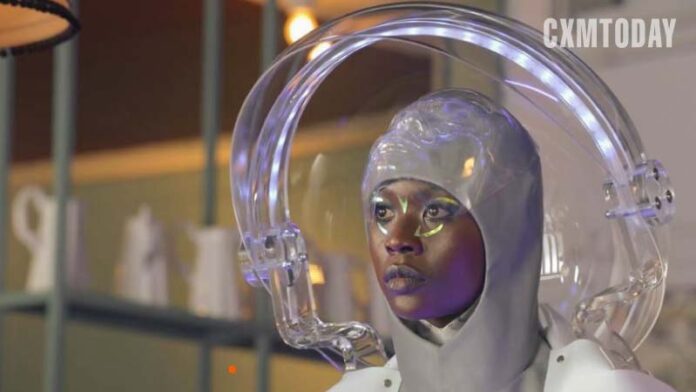Criteo says it’s trying to spark a debate among businesses and consumers about the aforementioned open internet – so-called net neutrality.
Criteo is an adtech company that provides online display advertisements. It has predominantly functioned behind the scenes working for brands but a bounce away from the end consumer. So, it was surprising when Criteo decided to occupy prime time air time during the Super Bowl. To add context, the championship game delivered a whopping 112.3 million viewers across NBC, Telemundo, Peacock, NBC Sports Digital, NFL Digital platforms and Yahoo Sports mobile properties.
But Criteo wasn’t the only one. Salesforce, known for its enterprise solutions for CRM, workforce app development platform Monday.com and online retailer Rakuten, also featured in Super Bowl ads.
The Criteo ad featured a woman in a coffee shop accosted by increasingly insistent future versions of herself all claiming they know what’s best for her. The tagline read, ‘Everyone will try to tell you what the future holds. Criteo is creating an open internet where you can choose what’s best for you … and future you.’
Will it connect with the average consumer? The company hopes that its microsite will explain the cause and implications. ‘A world without walls or limits, where consumers and the marketers and media owners that connect with them have more control and transparency. A respite from the curated vacuum and data black hole of walled gardens. Made possible by commerce media.’
We should mention that Criteo refers to itself as a Commerce Media company. The mission is to keep the open internet open. ‘It does this by helping marketers, and media owners advertise and monetize more effectively using commerce data and AI.’
Why is it important for consumers to know that the brands they buy from are businesses that compete on an equal playing field? For consumers, choice equals power. Power to support brands that align with their ideals, power to see all sides of a story, power to grant or deny access to their information—and the power to make decisions today that can change their future.
Net neutrality isn’t a new term, and it seems like there shouldn’t be much debate.
The idea is that internet service providers like Comcast and Verizon should treat all content flowing through their cables and cell towers equally. There are no exceptions. ISPs should not be able to slide some data into “fast lanes” while blocking or discriminating against other material.
Back during the Bush and Obama administrations, there was talk about enforcing net neutrality protections. After a series of legal defeats at the hands of broadband providers, the Federal Communications Commission passed a sweeping net neutrality order in 2015. But in December 2017, the Republican-controlled FCC voted to jettison that order, freeing broadband providers to block or throttle content as they see fit. Then, in October 2021, US President Joe Biden nominated Gigi Sohn to fill the vacant seat on the FCC. This would give Democrats control over the FCC.
Both Democrats and Republicans have major problems with the tech companies and the growing control they have. This is especially true as more enterprises adopt cloud, as consumers flock to streaming platforms and as the Metaverse is being built. The metaverse is sure to change the way future work and social interactions take place. This is not only a tech problem. While there’s bipartisan consensus that legislation is needed, the different outcomes lawmakers seek are often diametrically opposed across the political spectrum.
The open internet ensures that both new and established services have the same ability to reach users. Internet users depend on these common-sense protections that prevent discriminatory practices.
Sir Tim Berners-Lee invented the World Wide Web in 1989. According to the Web Foundation, the web was grounded in five core principles:
Decentralization: no permission is needed from a central authority to post anything on the web … and no “kill switch”! This also implies freedom from indiscriminate censorship and surveillance.
Non-discrimination: all connections to the internet are to be at the same level.
Bottom-up design: the web was developed in full view of everyone, encouraging maximum participation and experimentation.
Universality: anyone could publish anything on the web, and all the computers involved have to speak the same languages to each other, no matter what different hardware people are using.
Consensus: it is based on universal standards, so everyone had a say in creating the standards through a transparent, participatory process.
If you liked reading this, you might like our other stories
Happiest Place on Earth is Driven by Technology and CX
The Evolution of Consumer Demographics




